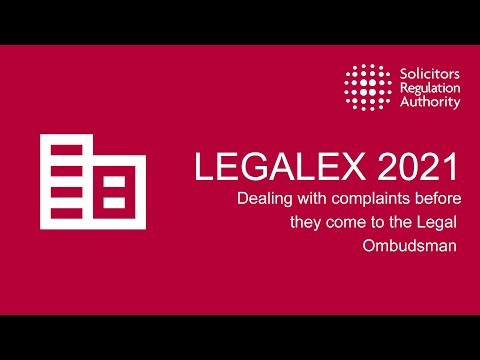
Introduction:
Welcome to this informative article on contacting the Legal Ombudsman UK. In this guide, we will explore the process of seeking assistance and resolving legal complaints with the help of the Legal Ombudsman. It is important to note that while this article aims to provide valuable information, it is always recommended to cross-reference with other reliable sources and consult legal advisors for personalized advice. Now let’s dive into the world of the Legal Ombudsman and discover how they can assist you in resolving legal issues.
Contacting the Legal Ombudsman UK: A Guide to Seeking Assistance and Resolution
Contacting the Legal Ombudsman UK: A Guide to Seeking Assistance and Resolving Legal Complaints
📋 Content in this article
When you find yourself in a situation where you are dissatisfied with the services provided by a legal professional or firm in the United Kingdom, it is important to know that there is an avenue for seeking assistance and resolution. The Legal Ombudsman UK is an independent organization that exists to help individuals address their concerns and resolve complaints related to legal services.
What is the Legal Ombudsman UK?
The Legal Ombudsman UK is a designated body established under the Legal Services Act 2007. It acts as an impartial mediator between clients and legal service providers, aiming to resolve disputes and promote fairness in the legal profession. The ombudsman operates independently from the government and legal profession, ensuring an objective and unbiased approach.
When to Contact the Legal Ombudsman UK
If you have experienced substandard service, unreasonable delays, excessive costs, or any other issues with a legal professional or firm, it may be appropriate to reach out to the Legal Ombudsman UK for assistance. Before contacting the ombudsman, it is advisable to attempt to resolve the matter directly with the legal service provider. However, if you are unable to come to a satisfactory resolution, you can turn to the Legal Ombudsman UK for guidance.
Before contacting the Legal Ombudsman UK, it is important to gather all relevant information pertaining to your complaint. This may include any correspondence, documents, or evidence that supports your case. Having a clear understanding of the issue and being able to present it coherently will facilitate the ombudsman’s ability to assist you.
To initiate the complaint process, you can contact the
Understanding the Most Common Complaints Received by the Legal Ombudsman
Understanding the Most Common Complaints Received by the Legal Ombudsman
When it comes to the legal system, disputes and complaints are inevitable. Whether you have engaged a lawyer for a personal injury claim, a family law matter, or any other legal issue, it is crucial to be aware of the most common complaints received by the Legal Ombudsman. This knowledge can help you avoid potential pitfalls and make informed decisions when seeking legal assistance. In this article, we will explore some of the common complaints received by the Legal Ombudsman and highlight key points for consideration.
1. Lack of Communication:
One of the most frequent complaints against legal professionals is a lack of communication. Clients often complain that their lawyers fail to respond to emails, return phone calls in a timely manner, or keep them updated on the progress of their case. This lack of communication can lead to frustration, confusion, and a breakdown in the attorney-client relationship. It is important for clients to establish clear lines of communication with their lawyers from the outset and set expectations for regular updates.
2. Delays:
Another common complaint is related to delays in legal proceedings. Clients may feel that their case is taking too long to resolve, resulting in increased costs, anxiety, and frustration. While some delays are unavoidable due to court schedules or other external factors, lawyers have a duty to minimize unnecessary delays and keep clients informed about any anticipated timelines.
3. Inadequate Advice or Representation:
Clients may also complain that they received inadequate advice or representation from their lawyers. This could include situations where lawyers fail to provide accurate legal advice, miss important deadlines, or make errors that negatively impact the client’s case. It is essential for clients to choose experienced and competent lawyers who have a track record of success in handling similar cases.
4. Billing Disputes:
Billing disputes are another frequent complaint received by the Legal Ombudsman. Clients may complain about excessive fees, unclear billing practices, or unexpected charges.
Title: Contacting the Legal Ombudsman UK: A Guide to Seeking Assistance and Resolving Legal Complaints
Introduction:
In today’s complex legal landscape, it is crucial for individuals and businesses to have a clear understanding of their rights and obligations. Legal disputes can arise unexpectedly, leaving parties feeling frustrated and unsure about the best course of action. To address this, many countries, including the United Kingdom, have established institutions such as the Legal Ombudsman to assist individuals in resolving legal complaints. This article aims to provide a comprehensive guide to contacting the Legal Ombudsman UK, emphasizing the importance of staying current on this topic.
1. The Role of the Legal Ombudsman UK:
The Legal Ombudsman UK is an independent body that provides a neutral platform for resolving complaints against legal service providers. Its primary goal is to ensure fairness and justice in legal proceedings by investigating complaints, mediating disputes, and recommending appropriate remedies. It handles complaints relating to various legal professionals, including solicitors, barristers, legal executives, licensed conveyancers, and other legal service providers.
2. Who Can Contact the Legal Ombudsman UK:
Any individual or business that has received unsatisfactory service from a legal professional can approach the Legal Ombudsman UK for assistance. However, it is important to note that certain eligibility criteria must be met before proceeding with a complaint. These criteria include:
3. Contacting the Legal Ombudsman UK:
To initiate a complaint with the Legal Ombudsman UK, individuals must follow specific procedures.
